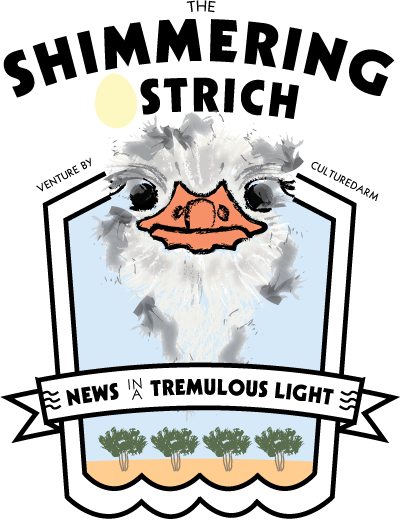
When David Bowie’s death was announced one morning last January, the sudden news – yes we see you little starman – proved the cause for almost universal lament. But as everyone began to piece together the details of his final days – the release of Blackstar, his twenty-fifth studio album, and the eighteen-month struggle with liver cancer hidden from all but his closest of friends – there was a dawning realisation, a sense that art after all had triumphed in the end.
Everything about Blackstar – from the album’s cover to an obscure reference to Elvis, from its shrouded recording sessions to the uncanny timing of its release, and particularly the name and content of its third song ‘Lazarus’, whose lyrics include ‘Look up here, I’m in heaven / I’ve got scars that can’t be seen’ – seemed to indicate careful planning, carried out with a conjurer’s knack and a craftsman’s flair.
The man who had already given us so many indelible personas – like Major Tom, Ziggy Stardust, Aladdin Sane, and The Thin White Duke – had somehow shifted once more as he breathed his last gasp. He had created in the face of nothingness, his last act, completed almost in passing, establishing the permanence of a body of work which broke down barriers in pop.
And yet Blackstar after all did not bring down the curtain, for against all expectations it seems that Bowie is back. While Blackstar was certainly a viable product in its own right, it now appears to have been something of a diversion, a mask cleverly construed to hide Bowie’s real purpose and final persona: that of the harbinger of death for 2016.
The year 2016 saw the untimely death of so many musicians, like Phife Dawg, Prince, George Michael, and Sharon Jones, as well as the passing of several elder statesmen, including Maurice White, Keith Emerson, Merle Haggard, and Leonard Cohen. We might thank the Lord – Hallelujah! – that there weren’t still more, but just look at the mess he made across the rest of the arts!
There were notable deaths too for Alan Rickman, Gary Shandling, Gene Wilder, Carrie Fisher, and Debbie Reynolds, all of whom departed us for a more luminous screen, for Harper Lee and Umberto Eco who drew their pens from paper, for Johann Cruyff, Muhammad Ali, and Arnold Palmer who set down the gauntlet of sports, and it emerged that Zaha Hadid would build no longer. The damnable year even saw off Fidel Castro and Zsa Zsa Gabor. Other people died also, and we were left saddened and wondering, what in the devil does all of it mean?
Alas it was all Bowie. The first of the big names to fall, he knew that his passing was God-awful, and set about ensuring that it would be no small affair. Painting a bigger picture, conceiving the possibility of a dying rather than a living installation of art, having warned us that the Earth’s demise could take as little as five years, now he would see just how much could be accomplished in one.
So he took the face of the Grim Reaper, never letting us catch even a glimpse. He selected icons and assorted others so as to complement rather than diminish the effect of his own passing. And with a string of celebrity deaths in the year’s final week, he ensured that this freakiest of all shows would well and truly blow our minds.
As the year comes to a close so departs Bowie’s spectre. But an album of new material is imminent, with song titles such as ‘The Seventh Seal’ and ‘The Third Day’. The record’s cover will be a facsimile of Bowie’s death mask, cast in plaster. And a bonus track will reprise his iconic 2006 appearance on Extras, which brought the then living legend to a new generation of fans.
Under the heading ‘Little Orange Loser’, many of the original lyrics will remain. They incorporate references to a man who, wearing a wig and repeating lame catchphrases, ‘sold his soul for a shot at fame’ but soon wound up a ‘national joke’. Ever prescient, even from beyond the grave, as the annus horribilis which was 2016 peters out, Bowie seems to have his sights set and his ears pricked for the coming year’s terror, which is the imminent presidency of Donald Trump.





